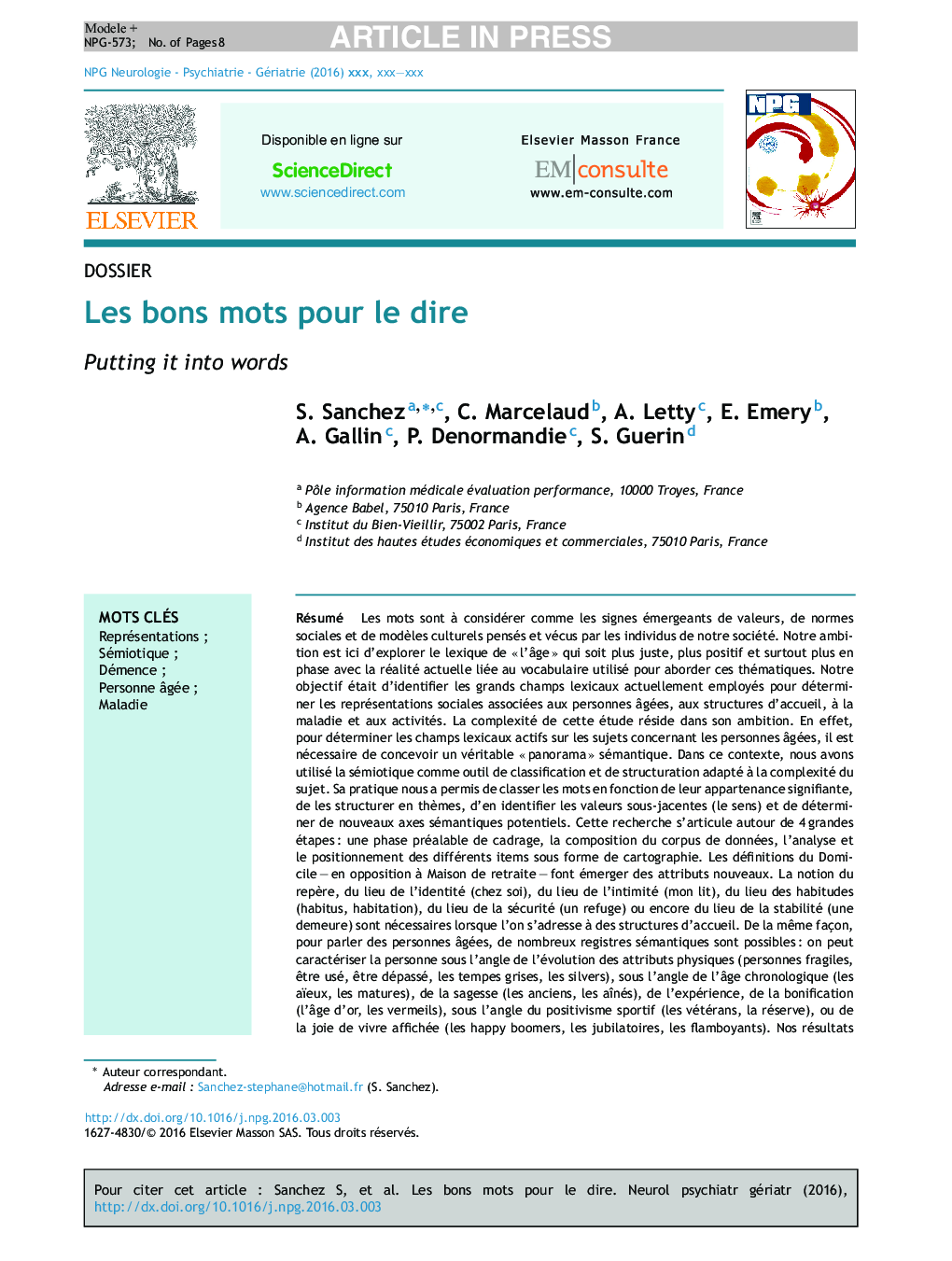| Article ID | Journal | Published Year | Pages | File Type |
|---|---|---|---|---|
| 3325983 | NPG Neurologie - Psychiatrie - Gériatrie | 2016 | 8 Pages |
Abstract
Words can be considered as emerging signs of values, social norms and cultural models conceived and experienced by individuals in our society. Our ambition here is to explore the lexicon of “age” to reach a definition that is more accurate, more positive and, in particular, more in line with the present reality of the vocabulary used to approach these themes. Our goal is to identify the broad lexical fields currently used, so as to determine the social representations linked to the elderly, to geriatric care facilities, to illness and to activities. The complexity of this study lies in its ambitions. Indeed, in order to determine the lexical fields that are in use on subjects concerning the elderly, it is necessary to conduct a semantic overview. With this aim in mind, we used semiotics as a classification and structuring tool tailored to the complexity of the subject. This enabled us to classify words according to their meaning affiliations, to structure them into themes, to identify the underlying values (the meaning) and to determine new potential semantic approaches. This research work entails 4 main steps: an initial outlining phase, the collation of the corpus of data, the analysis and the positioning and mapping of the different items. The definitions of home - as opposed to the retirement home - reveal new characteristics. The notion of a point of reference, of a place of belonging (my home), of a place of privacy (my bed), of a place of habits (habitus, home), of a place of safety (a shelter) or a place of stability (a dwelling) need to be called upon when addressing geriatric care facilities. In the same way, to talk about the elderly, numerous semantic categories are possible: one can characterize the person from the angle of the evolution of physical characteristics (frail individuals, wear and tear, losing touch, grey temples, silvers), from the angle of chronological age (forebears, maturity), of wisdom (predecessors, elders), of experience, improvement (the golden years, senior citizens) from the positive angle of sport (veterans, reservists), or that of overt “joie de vivre” (happy boomers, TINKs, flamboyants). Our results identify a real wealth and wide semantic diversity across these 4 themes. This variety indicates a real potential for the evolution of semantics toward a more positive approach to these issues.
Keywords
Related Topics
Health Sciences
Medicine and Dentistry
Geriatrics and Gerontology
Authors
S. Sanchez, C. Marcelaud, A. Letty, E. Emery, A. Gallin, P. Denormandie, S. Guerin,
